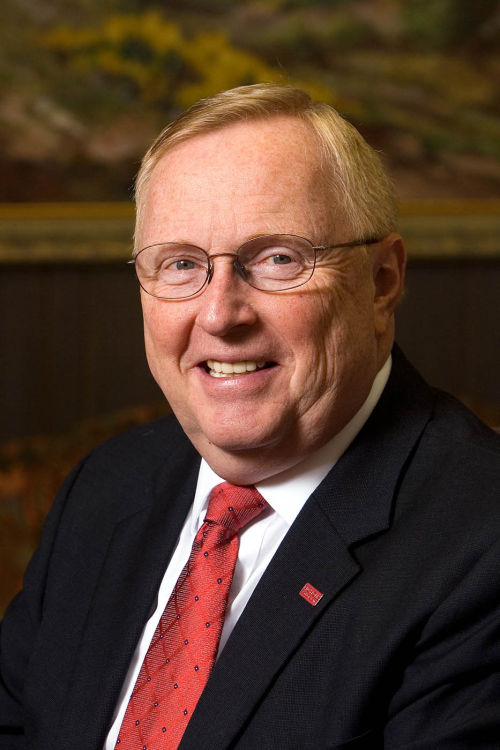Breck to talk storm readiness at TEDA event
July 9, 2013
Accreditors warn Nicholls
July 9, 2013Nobody thinks the sky is falling – just yet – but some college administrators are closely watching effects new state admissions standards may have for next year’s high school graduates.
The standards, which include higher ACT scores and grade point averages, have been in effect. But certain elements will affect Nicholls State University for the first time, administrators said. That might make for problems in some cases because students already approved for financial aid packages that pay for tuition and expenses might get shut out of the four-year school.
“It’s a difficult situation waiting to happen,” said Nicholls Dean of Academic Affairs Eugene Dial, who is among educators concerned about the tweaks. The ACT composite score must be a 20 for Nicholls admission, but with an English sub-score of at least 18 and a math sub-score of at least 19. That’s according to documents supplied by the Board of Regents and other materials, confirmed by interviews with officials there and at Nicholls. Scores lower than that would indicate need for remedial courses, which could put some students on the outside.
Officials at Tri-parish region school districts are aware that new requirements may affect their Nicholls-bound seniors, but said they are comfortable enough college options exist overall.
“They know about it,” Lafourche school district spokesman Floyd Benoit said of his students, teachers and guidance staff. “They have been knowing about it.”
Nicholls can enroll some students through an exception process, but the totals are limited, and the number of permitted exceptions is based on a complex formula.
Dial said dialogue is in progress with high school officials to better prepare them for the changes.
Terrebonne Parish Schools Superintendent Philip Martin said he is aware that the university system has increased its requirements for years, following decades of open admissions.
“They are moving to where the four-year universities do have some academic entrance requirements but I don’t see where in our area that will have a negative impact,” Martin said, explaining that options exist for students willing to attend Fletcher Technical and Community College for two years, earning scores that will allow them a transfer to Nicholls to complete a four-year degree program.
“If (students) are not fully qualified, they can go there for a year or two, then go on,” he said. “I should add I am an opponent of any system that outright excludes students. But if they can try through the community college, I think that’s great … I don’t think it will be a huge detriment to kids, but at the same time they have to know, if you are going to go to college, you have to prepare yourself early.”
Martin recommends “intensive preparation upon entering high school” for students who see themselves as college-bound.
The superintendent urged his own grandchildren to start at Fletcher.
“It’s getting your feet wet, acclimating to what college requirements are.”
Martin praised outgoing Nicholls President Stephen Hulbert for working with community college officials to ease transfer of credits.
At the two-year school, Chancellor Travis Lavigne said he does not expect any negatives from an increased enrollment due to any Nicholls shutouts.
“I am aware of the changing requirements,” he said. “In my role as chancellor at a two-year school, we have to ramp up to be able to handle the needs students experience as they prepare to transfer to the various four-year schools. We have to meet the same faculty credential requirements that the universities would have, and we will have to be prepared to handle the number of students and the content as necessary.”
Lavigne said Fletcher can handle a 20 percent increase in its student body of around 1,200 if the need arises.
Fletcher was originally run solely as a technical college, with courses in skilled trades to prepare electricians, welders or machinists – as well as mariners – and other aspects that help meet the needs of area industry.
The dual role as a community college has required more emphasis on reading and writing for students preparing for associate degrees.
Lavigne acknowledged that a continued demand for his school will require more staff, although he noted that expenses for the academic end of the education Fletcher offers is less expensive than for the specialty skills, which often require costly hardware.
He did acknowledge an important difference between Fletcher and Nicholls, however.
Fletcher is not yet prepared to include student loans in its financial aid packages, although TOPS – Louisiana’s tuition assistance program – and federal Pell grants are available, as they are for students at four-year schools.
Some students use their loans as part of the financial aid mix to aid in not only paying tuition, but expenses related to school.
Continued cuts to higher education at the state level will mean more difficult choices ahead, administrators acknowledge, and the possibility that getting new instructors could be difficult.
At the same time, Dial acknowledged, a lower demand for the institution could mean the need for changes in instructor and learning tools costs.
“You can only make so much soup out of so many turnips,” Dial said.
Some are worried that Nicholls State University’s admission standards, in place since 2005, will divert place-bound students away from the four-year regional institution. Fletcher Technical Community College will likely see increased enrollment, due to its enhanced infrastructure and remedial-course offerings.










